By Stan Paul
Retreating coastlines. An information revolution. The ever-evolving ethnic makeup of the United States. These are times of rapid change, presenting new challenges to how and where we live and work.
Meeting the challenges of this new normal and finding solutions to shifting problems and populations, the UCLA Luskin School of Public Affairs has undergone unprecedented growth. In fall 2018, nine new scholars joined Luskin’s faculty in positions that cross disciplinary lines within the School and across the campus. This follows the addition of six other new faculty members since 2016. Four more are being recruited.
This expansion is partly tied to the launch of a new undergraduate major in public affairs, but it’s about more than filling out a schedule of classes. The School has become one of the most diverse and interdisciplinary units in the University of California system, Dean Gary Segura said. The additions were designed to expand “expertise and social impact,” making the school “profoundly well-positioned to engage, educate, study, and contribute to California’s diverse and dynamic population.”
Among the new faculty, six are women and four are Latino.
Some already have strong interests in Los Angeles as well as ties to UCLA and the region, and others will have the opportunity to incorporate Los Angeles into their work.
“I’m extremely excited to be coming home, living on the Eastside and working on the Westside,” said Chris Zepeda-Millán, associate professor of public policy and Chicana/o studies. Zepeda-Millán, a political scientist who grew up in East Los Angeles, studies how mass protest impacts public opinion, policy preferences, identities and political participation. His book, “Latino Mass Mobilization, Immigration, Racialization, and Activism,” received awards this year from the American Political Science Association and the American Sociological Association.
Zepeda-Millán is thrilled to be at UCLA: “It’s truly a dream come true.”
Martin Gilens, professor of public policy, previously taught political science at UCLA. After a long stint at Princeton, he returned to UCLA, where he has multi-generational ties — his parents and grandfather are
Bruins. A native Angeleno, Gilens studies race, class, social inequality and their representational effects in the political system. He teaches courses to graduate and undergraduate students.
“I’m looking forward to the interdisciplinary environment of the Luskin School,” Gilens said. “My Ph.D. is in sociology, and I’ve taught in political science and public policy, so I’m a walking embodiment of interdisciplinarity.”
Natalie Bau adds global perspective and reach. She is an economist studying development and education, with a particular interest in the industrial organization of educational markets. She looks at cultural traditions — such as bride price and dowry practiced in some countries — and their role in determining parents’ human capital investments in their children, and how they evolve in response to the economic environment.
In Zambia, she and research colleagues are tracking the outcomes of 1,600 adolescent girls to evaluate the effects of an experiment that randomly taught negotiation skills.
“My research interests include understanding factors that impact police decision-making and public trust in police,” said Assistant Professor of Public Policy Emily Weisburst, who studies labor economics and public finance, including criminal justice and education. “I am also interested in how interactions with the criminal justice system affect individuals, families and communities.”
Amada Armenta earned her doctorate in sociology in 2011 from UCLA and returns as an assistant professor in UCLA Luskin Urban Planning.
“I am thrilled to be back, to contribute to a university that has played such a formative role in my education,” said the author of the award-winning book, “Protect, Serve and Deport: The Rise of Policing as Immigration Enforcement.” Most recently she has examined how undocumented Mexican immigrants navigate bureaucracies in Philadelphia.
“Put briefly, I study the social impacts of climate change and how cities are adapting,” says Assistant Professor of Urban Planning Liz Koslov. “My research specifically focuses on the adaptation strategy known as ‘managed retreat,’ the process of relocating people, un-building land, and restoring habitat in places exposed to flooding, sea level rise, and other effects of climate change.”
Koslov is working on a book aptly titled, “Retreat,” that follows residents of Staten Island in New York City whose houses were damaged or destroyed by Hurricane Sandy and who subsequently decided to relocate rather than rebuild in place.
Like Koslov, new Urban Planning colleague V. Kelly Turner conducts research with an environmental lens. Her work addresses the relationship among institutions, urban design and the environment through two interrelated questions: How does urban design relate to ecosystem services in cities? And to what extent do social institutions have the capacity to deliver those services?
Turner said her approach draws from social-ecological systems frameworks to address urban planning and design problem domains. She has used this approach to investigate microclimate regulation through New Urbanist design, water and biodiversity management through homeowners associations, and stormwater management through green infrastructure interventions.
Joining UCLA Luskin Social Welfare is Amy Ritterbusch, who has led social justice-oriented participatory action research initiatives with street-connected communities in Colombia for the last decade, and also recently in Uganda. Her work documents human rights violations and forms of violence against the homeless, sex workers, drug users and street-connected children and youth, and subsequent community-driven mobilizations to catalyze social justice outcomes within these communities.
“My current research contemplates the dilemmas within our social movement in terms of how to create protective environments for social justice researchers and activists in the midst of working on and against acts of violence and injustice,” Ritterbusch said.
Assistant Professor of Social Welfare Carlos Santos draws on diverse disciplines, theories and methods to better understand how oppressions such as racism and heterosexism overlap to create unique conditions for individuals.
With a background in developmental psychology, Santos believes that developmental phenomena must be studied across diverse disciplines and perspectives. He draws on the largely interdisciplinary interpretive framework of intersectionality, which is a view “underscoring how systems of oppression overlap to create inequities.”

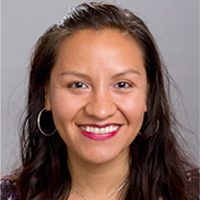 Amada Armenta: She is returning to UCLA where she completed her PhD in sociology, and will join Urban Planning in the fall. Armenta comes to UCLA from the University of Pennsylvania where she is an Assistant Professor of Sociology. Her work looks at immigration enforcement and its impact on the lives and communities affected. She is particularly interested in the intervention of the criminal justice system in immigration enforcement. She has been published in Social Problems and the Annual Review of Sociology, in addition to her University of California Press book, “Protect, Serve, and Deport: The Rise of Policing as Immigration Enforcement.”
Amada Armenta: She is returning to UCLA where she completed her PhD in sociology, and will join Urban Planning in the fall. Armenta comes to UCLA from the University of Pennsylvania where she is an Assistant Professor of Sociology. Her work looks at immigration enforcement and its impact on the lives and communities affected. She is particularly interested in the intervention of the criminal justice system in immigration enforcement. She has been published in Social Problems and the Annual Review of Sociology, in addition to her University of California Press book, “Protect, Serve, and Deport: The Rise of Policing as Immigration Enforcement.”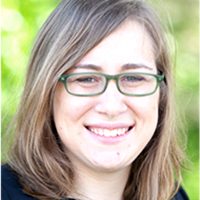 Natalie Bau: She is an international economist currently at the University of Toronto and will be joining Public Policy. Bau’s work examines several different aspects of the economics of education and educational policies and their downstream implications, including the effects on marriage patterns, teacher pay, student achievement and motivation, and others. She has projects in the works including “The Misallocation of Pay and Productivity in the Public Sector: Evidence from the Labor Market for Teachers” as well as “Labour Coercion and Economic Growth: Evidence from the Harrying of the North.”
Natalie Bau: She is an international economist currently at the University of Toronto and will be joining Public Policy. Bau’s work examines several different aspects of the economics of education and educational policies and their downstream implications, including the effects on marriage patterns, teacher pay, student achievement and motivation, and others. She has projects in the works including “The Misallocation of Pay and Productivity in the Public Sector: Evidence from the Labor Market for Teachers” as well as “Labour Coercion and Economic Growth: Evidence from the Harrying of the North.”
 Amy Ritterbusch: She will be joining Social Welfare. Ritterbusch is a human and urban geographer and currently an associate professor of government at the Universidad de los Andes in Bogotá, Colombia. Her work is focused on urban social justice movements, marginalized youth, substance abuse, prostitution and other downstream effects of child poverty. She also brings extensive expertise in field work, ethnographic methods and Latin American populations across the hemisphere. She has written several journal articles, which have been featured in Child, Abuse & Neglect, Global Public Health, Annals of the American Association of Geographers and other peer-reviewed journals.
Amy Ritterbusch: She will be joining Social Welfare. Ritterbusch is a human and urban geographer and currently an associate professor of government at the Universidad de los Andes in Bogotá, Colombia. Her work is focused on urban social justice movements, marginalized youth, substance abuse, prostitution and other downstream effects of child poverty. She also brings extensive expertise in field work, ethnographic methods and Latin American populations across the hemisphere. She has written several journal articles, which have been featured in Child, Abuse & Neglect, Global Public Health, Annals of the American Association of Geographers and other peer-reviewed journals.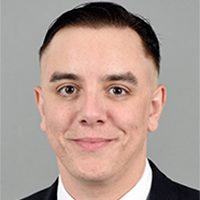 Carlos Santos: Currently an assistant professor in counseling psychology at ASU, Santos is coming to UCLA Luskin Social Welfare. His work is principally on gender and ethnic identities, stereotypes, and their impacts on social adjustment, educational performance and outcomes among adolescents in communities of color. He received his PhD from NYU and his work has been funded by NSF and NIH. In addition to his monograph “Studying Ethnic Identity” for the American Psychological Association, his work has been published in many outlets, including the Journal of Youth and Adolescence and the Journal of Counseling Psychology.
Carlos Santos: Currently an assistant professor in counseling psychology at ASU, Santos is coming to UCLA Luskin Social Welfare. His work is principally on gender and ethnic identities, stereotypes, and their impacts on social adjustment, educational performance and outcomes among adolescents in communities of color. He received his PhD from NYU and his work has been funded by NSF and NIH. In addition to his monograph “Studying Ethnic Identity” for the American Psychological Association, his work has been published in many outlets, including the Journal of Youth and Adolescence and the Journal of Counseling Psychology.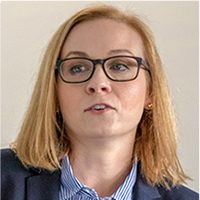 V. Kelly Turner: Turner is currently an assistant professor of geography at Kent State and her focus is human-environmental interaction and urban management. She will join Luskin Urban Planning in the fall. Her focus has been on how institutional arrangements and good metrics for resource consumption can help us build toward a more sustainable ecosystem, and she has applied this work to water resources, sustainable urbanism, and green infrastructure. She is the author of more than a dozen journal articles in publications such as Applied Geography, Ecology and Society, Urban Geography, and others.
V. Kelly Turner: Turner is currently an assistant professor of geography at Kent State and her focus is human-environmental interaction and urban management. She will join Luskin Urban Planning in the fall. Her focus has been on how institutional arrangements and good metrics for resource consumption can help us build toward a more sustainable ecosystem, and she has applied this work to water resources, sustainable urbanism, and green infrastructure. She is the author of more than a dozen journal articles in publications such as Applied Geography, Ecology and Society, Urban Geography, and others.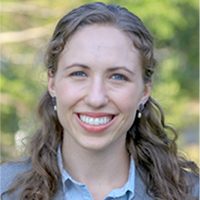 Emily Weisburst: She is finishing a PhD in economics at UT-Austin and will be joining Public Policy. Her work focuses on bias in policing, officer discretion in arrest behavior, police reform, and the effects of police presence in public schools. Weisburst previously served as a staff economist at the Council of Economic Advisors in the Executive Office of the President, and has done collaborative research for RAND and the State of Texas. Her work has been published in the Journal of Higher Education and Educational Evaluation and Policy Analysis.
Emily Weisburst: She is finishing a PhD in economics at UT-Austin and will be joining Public Policy. Her work focuses on bias in policing, officer discretion in arrest behavior, police reform, and the effects of police presence in public schools. Weisburst previously served as a staff economist at the Council of Economic Advisors in the Executive Office of the President, and has done collaborative research for RAND and the State of Texas. Her work has been published in the Journal of Higher Education and Educational Evaluation and Policy Analysis.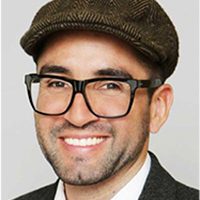 Chris Zepeda-Millan: He joins Luskin Public Policy. Zepeda-Millan is a political scientist and current professor of ethnic studies at UC Berkeley. His research focuses on social movements, immigration and communities of color, and has been published in American Journal of Political Science, Political Research Quarterly, Social Science Quarterly, and Politics, Groups and Identities. His book, “Latino Mass Mobilization: Immigration, Racialization and Activism,” was recently published by Cambridge University Press. Zepeda-Millan will be jointly appointed in the Department of Chicana/o Studies and will be working with the Latino Policy and Politics Initiative.
Chris Zepeda-Millan: He joins Luskin Public Policy. Zepeda-Millan is a political scientist and current professor of ethnic studies at UC Berkeley. His research focuses on social movements, immigration and communities of color, and has been published in American Journal of Political Science, Political Research Quarterly, Social Science Quarterly, and Politics, Groups and Identities. His book, “Latino Mass Mobilization: Immigration, Racialization and Activism,” was recently published by Cambridge University Press. Zepeda-Millan will be jointly appointed in the Department of Chicana/o Studies and will be working with the Latino Policy and Politics Initiative.